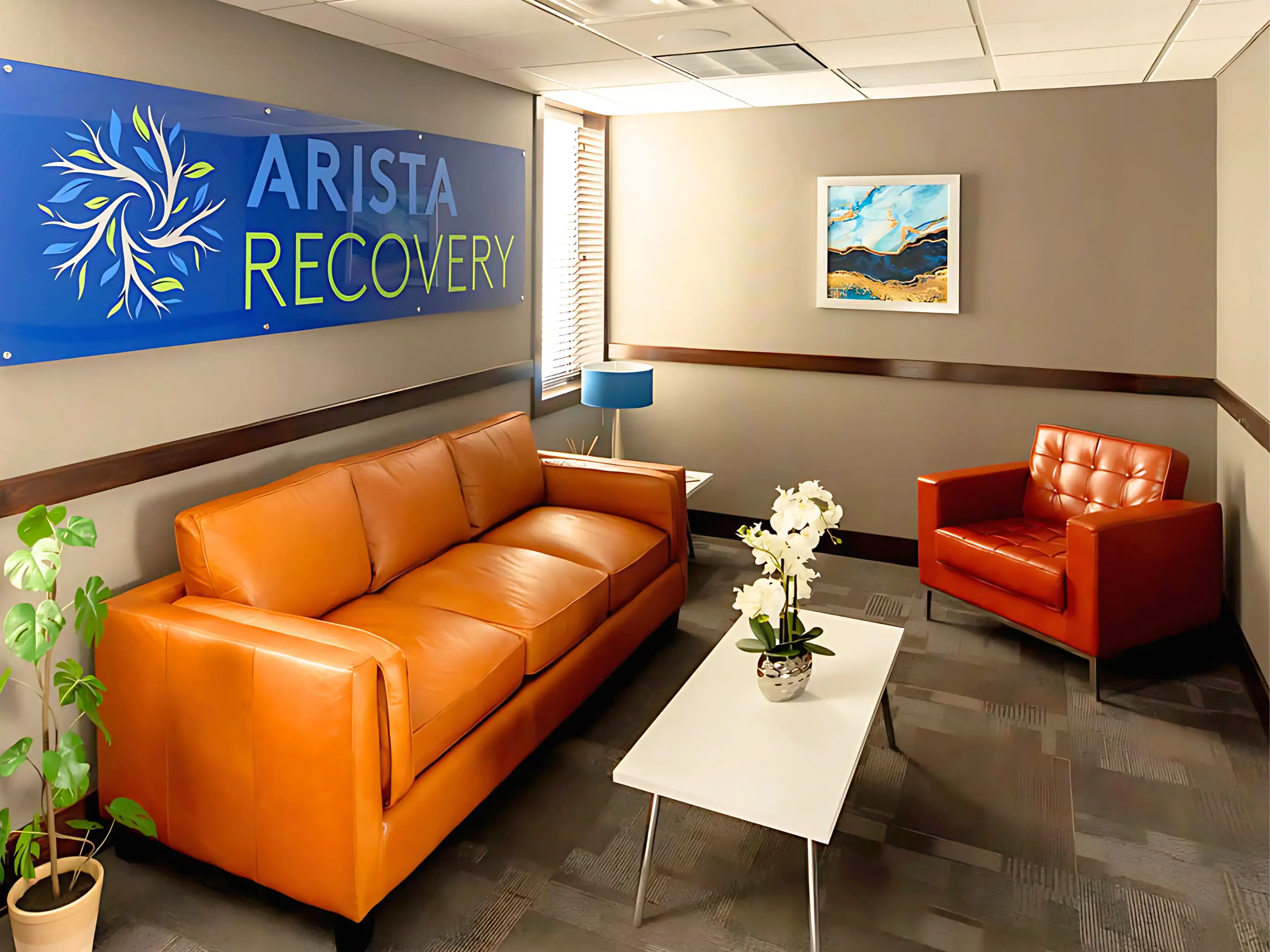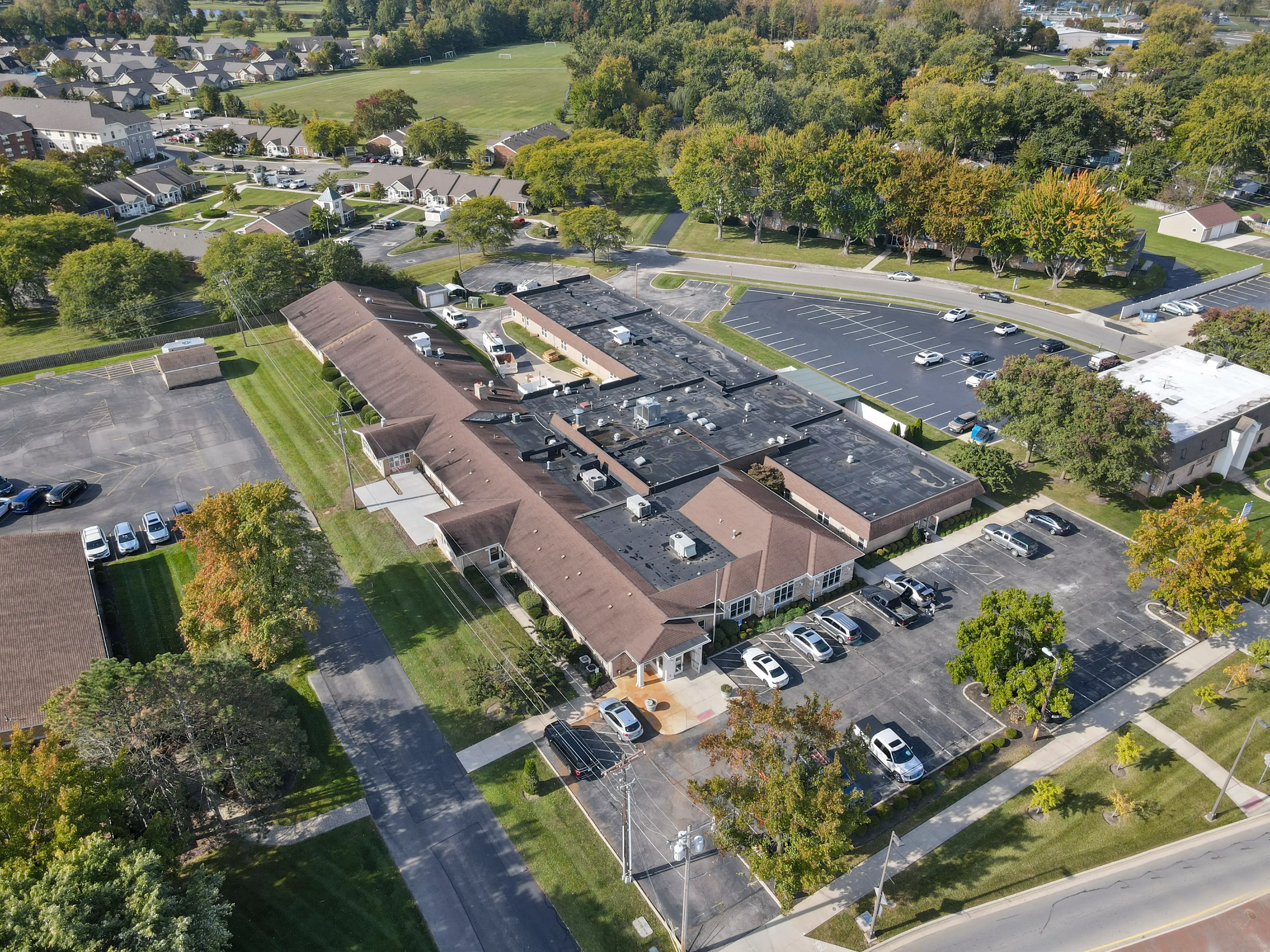Dual Diagnosis Treatment In Kansas & Ohio
You’re not facing two separate struggles – you’re experiencing one interconnected challenge that deserves a unified path to healing.
At Arista Recovery, our dual diagnosis therapy program treats both substance use and mental health together, helping you find balance, clarity, and lasting recovery.



Dual Diagnosis Treatments at Arista Recovery
What Are Dual Diagnosis Treatments?
When you’re living with both a substance use disorder and a mental health condition, treating only one side of the struggle can leave you vulnerable to relapse.
Dual diagnosis treatments provide integrated, whole-person care. At Arista Recovery, your therapist, medical team, and support staff work together to understand how your mental health and addiction influence one another, creating a treatment plan that supports every part of your recovery.
Unlike standard rehab programs that focus primarily on substance use, dual diagnosis care at Arista addresses both conditions at the same time. This simultaneous, evidence-based approach helps you find balance and stability while rebuilding your emotional and physical health.
At Arista Recovery, our dual diagnosis program helps you break that cycle through compassionate, integrated care – so you can heal fully and move forward with clarity and confidence.
Signs You Might Need Dual Diagnosis Treatments
You might benefit from dual diagnosis therapy if you:
- Turn to drugs or alcohol to manage symptoms of depression, anxiety, or trauma
- Experience mental health symptoms that worsen when you try to stop using substances
- Have undergone previous treatment that worked temporarily but didn't last
- Feel like something deeper is driving your substance use
- Struggle with racing thoughts, mood swings, or persistent sadness alongside addiction
- Utilize self-medicating to cope with painful memories or overwhelming emotions
If you recognize these patterns, dual diagnosis rehab can help. Arista Recovery provides comprehensive assessments to identify both conditions and create a personalized treatment plan.




Why Choose Arista Recovery for Dual Diagnosis Treatments?
Arista Recovery delivers evidence-based dual diagnosis treatments with heart. We combine clinical excellence with genuine compassion because healing requires both science and human connection.
We don't just treat symptoms – we help you build a new foundation for lasting recovery.
Our medical director is a board-certified addictionologist, and our clinical team includes licensed therapists trained in trauma-focused care. This expertise ensures you receive proper medication management and effective therapy simultaneously.
We offer specialized modalities delivered through innovative approaches. You'll participate in cognitive behavioral therapy (CBT), dialectical behavioral therapy (DBT), and trauma-informed therapy, alongside experiential therapies like equine therapy, art therapy, and music therapy.
Your dual diagnosis program is customized to your specific needs. We treat many common conditions that often co-occur with addiction, including:
- Depression
- Anxiety disorders
- Bipolar disorder
- PTSD
- ADHD
Every person's journey is different. Your treatment plan reflects your unique situation, not a one-size-fits-all approach.
At Arista Recovery, we know lasting recovery doesn’t happen alone – it happens with the people who matter most. Your loved ones are active participants in your recovery journey through family therapy sessions and educational support.
Addiction and mental health challenges can impact the entire family. That’s why we help your support system heal alongside you, providing the tools, understanding, and guidance everyone needs to rebuild trust and strengthen relationships.
Arista Recovery is accredited by JCAHO and Legitscript. These certifications demonstrate our commitment to quality care and ethical practices, ensuring you get the care and treatment you deserve.
Our Dual Diagnosis Treatments and Supplementary Therapies
Dual diagnosis care at Arista Recovery often begins with medical detox, when needed. During this stage, our clinical team helps you manage withdrawal symptoms safely and comfortably using evidence-based, trauma-informed protocols so you can begin healing with confidence and stability.
For many individuals, dual diagnosis treatments include psychiatric medication to help balance mental health symptoms while building healthy coping skills. Our team takes the time to understand your full story, helping you find the right treatment approach under compassionate medical supervision.
Beginning medication alongside therapy can provide the stability needed to process emotions, learn new coping strategies, and begin long-term healing. As your skills and confidence grow, your treatment plan may evolve – with or without medication.
Medication alone can’t teach you how to navigate triggers, rebuild relationships, or move forward from trauma. That’s why our integrated approach combines therapeutic and medical care, giving you the support you need to heal on every level.
At Arista Recovery, treatment is designed as a complete and connected experience. Every aspect of care – medical, clinical, and emotional – is integrated to support your recovery from the inside out. The goal isn’t just stability, but lasting change rooted in understanding, accountability, and personal growth.
With evidence-based practices, compassionate guidance, and a community that truly understands the journey, we provide everything you need to recover, rebuild, and thrive.




Dual Diagnosis Treatment Locations
Arista Recovery operates facilities in Kansas and Ohio, providing accessible care throughout the Midwest.
Our Kansas campuses offer a full range of services to support every stage of healing.
You can find inpatient detox and residential treatment at our serene 38-acre campus in Paola.
For a full continuum of care, our Overland Park location is ideal for clients transitioning from higher levels of care or seeking structured support while maintaining daily responsibilities
Our Ohio location provides all treatment options that our Kansas locations offer, located conveniently in Hilliard.
All facilities offer comfortable, dignified environments designed for healing. You'll receive the same evidence-based care and compassionate support at either location.
Experience Whole-Person Healing at Arista Recovery
Healing from addiction and mental health challenges takes more than strength – it takes the right support. At Arista Recovery, our dual diagnosis treatment helps you rebuild stability, balance, and confidence through truly integrated care.
By treating both your mental health and substance use together, we help you uncover the roots of your struggles and create a foundation for long-term recovery.
With compassionate guidance, evidence-based therapies, and a full continuum of care, our team walks beside you every step of the way. You don’t have to face this alone. Arista Recovery is here to help you heal fully—mind, body, and spirit.
Quick Admission Process
A simple & easy same-day admissions process
Contact
Reach out to our caring admissions team via phone, text or webform.
Verification
Get a free benefits verification form to confirm your coverage options.
Pre-screening
We will do a quick confidential pre-screen to ensure we are a fit for you.
Treatment
We will schedule transportation and your intake at Arista Recovery.
Quick Admission Process
See How Healing Begins
Watch a brief overview of our medical detox program and learn how our team provides safe, compassionate care to help you start recovery with confidence.
OUR LOCATIONS
Visit One of Our Trusted Locations
Access expert care and compassionate support at our accredited recovery centers across the Midwest. Each location offers a safe, welcoming space where lasting healing and growth begin.
Inside Our Detox Program
See How Healing Begins
OUR APPROACH
Our Unique Therapies
Explore our innovative approach to addiction treatment at Arista Recovery. From evidence-based therapies to holistic and experiential methods, we offer an immersive experience that works to treat the root causes of substance abuse.
.webp)



FAQs
Frequently Asked Questions About Dual Diagnosis Treatment
Some common questions our team receives about dual diagnosis treatments include:
Dual diagnosis refers to having both a substance use disorder and a mental health condition. You need dual diagnosis therapy if you're struggling with addiction alongside depression, anxiety, PTSD, bipolar disorder, or other mental health issues.
Treatment duration varies based on your individual needs. Because each person’s needs and progress are unique, there’s no set timeline. Factors like your mental health, physical stability, support network, and response to therapy all help guide the pace of your care.
Recovery isn’t a race – it’s a process. Research shows that consistent engagement in treatment improves long-term success. While detox may take about a week and residential care often lasts one to three months, many clients continue their healing through outpatient or aftercare services for added support.
Your treatment team will personalize your plan and make adjustments as you grow, ensuring you always receive the right level of care at the right time.
Substance use disorder is a mental health condition, not a moral failing. It involves changes to brain chemistry that affect decision-making and impulse control. Like other mental health conditions, it requires professional treatment.
Dual diagnosis treatments address the underlying causes driving both your addiction and mental health symptoms.
Most commercial insurance plans cover dual diagnosis mental health treatment. Arista Recovery accepts Aetna, Anthem, Blue Cross Blue Shield, Cigna, United Healthcare, and many other major insurers. Call us for a free insurance verification to understand your coverage and out-of-pocket costs.
Yes. Integrated dual diagnosis therapy provides the tools and support you need for lasting recovery. When both conditions are treated together, your chances of long-term success increase significantly.
You'll learn to manage mental health symptoms without substances and address the root causes of your addiction.
.webp)

.webp)








